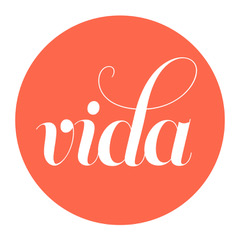
We all know the old proverb that the only certainties in life are death and taxes. If you’re reading this, you’ve avoided the first one for now, but, the second one is imminent.
Think of the end of the year like the starting bell at the Kentucky Derby, only instead of 30 seconds of julep-fueled excitement, it launches four months of very long workweeks for people like Jenna Goldin, Portland-based licensed tax preparer. We caught up with Jenna to get her best tips for small business owners and self-employed people as they prep for tax season.
Disclaimer: Taxes are highly situational, this shouldn’t be interpreted as tax advice, and we urge you to consult with a qualified financial professional about your personal situation.
Get your ducks in a row
Preparation is half the battle. “Before year-end, I encourage my clients to add up their income and expenses so we can run an estimate,” says Jenna. “That way they can see what it looks like they might owe so they can make strategic decisions before the end of the year.”
If it’s looking like you won’t owe a considerable amount, you might consider investing in your business, which can reduce your taxable income. December 31 is your deadline to make any major business purchases for 2018. Equipment, supplies, advertising, continuing education classes, and so forth are all fair game. However, if you run a business with a physical product, Jenna cautions against acquiring a lot of inventory near the end of the year, which can actually increase your tax bill.
Strategize about retirement contributions
There are many ways to save for retirement, and some options, like SEP IRAs and traditional 401ks, can reduce your taxable income. Different types of accounts have different annual contribution limits, some contingent on your income, so it’s good to consult a professional about your specific situation.
Fortunately, you don’t need to rush to get this done by New Year’s Eve. You have until April 15, 2019, to make contributions under your 2018 contribution limits to a Solo 401K or Traditional IRA. For SEP IRAs, if you file an extension, you have until October 15, 2019, to contribute under you 2018 limits. In all these cases, just make sure you clearly identify which year’s limit your contribution should count towards on your check or electronic transfer. ROTH IRA contributions are made with after tax dollars, but can be made until the filing deadline as well.
Changes this year
A new tax bill means changes for small businesses. Most significantly, and likely temporarily, pass-through entities (sole proprietorships, single-member LLCs, partnership LLCs, and S-Corps) will be able to deduct up to 20% of their business revenue on federal income tax filings. There are some limits on this provision, including the kinds and sizes of businesses able to take it. It also very much remains to be seen if this deduction will be available in 2019 and beyond. “There’s a lot we’re still in the dark about,” says Jenna.
Other changes to be aware of include:
- Entertainment is no longer deductible (although work-related meals are still an allowable expense at the standard 50% rate)
- Unreimbursed employee expenses are no longer deductible
- Moving expenses are no longer deductible
Plan for success next year
Taxes happen every year, which means they’re one of many opportunities life hands us for continual improvement. Jenna says having a good bookkeeping system—either software-based like Quickbooks, a simple spreadsheet if your business is not too complex, or paying somebody else to take care of it—makes tax season way easier. Paying quarterly taxes and saving for your taxes all year long also turns tax season from an oh-crap annual crisis to a near non-event.
If you don’t have a professional to help you estimate your taxes, Jenna suggests saving a baseline of 30% of your net income, or 20% of your gross income, for taxes each year. “Part of your overhead is taxes,” she says. “They’re a necessary and recurring business expense.”
If the world of taxes makes your head spin, you’re not alone – and there are resources to help. “There are a ton of really helpful free and low-cost tools for getting small business support,” says Jenna. “If you’re scared of taxes, hiding from it will only make it worse. Go out and get people to help you.”

